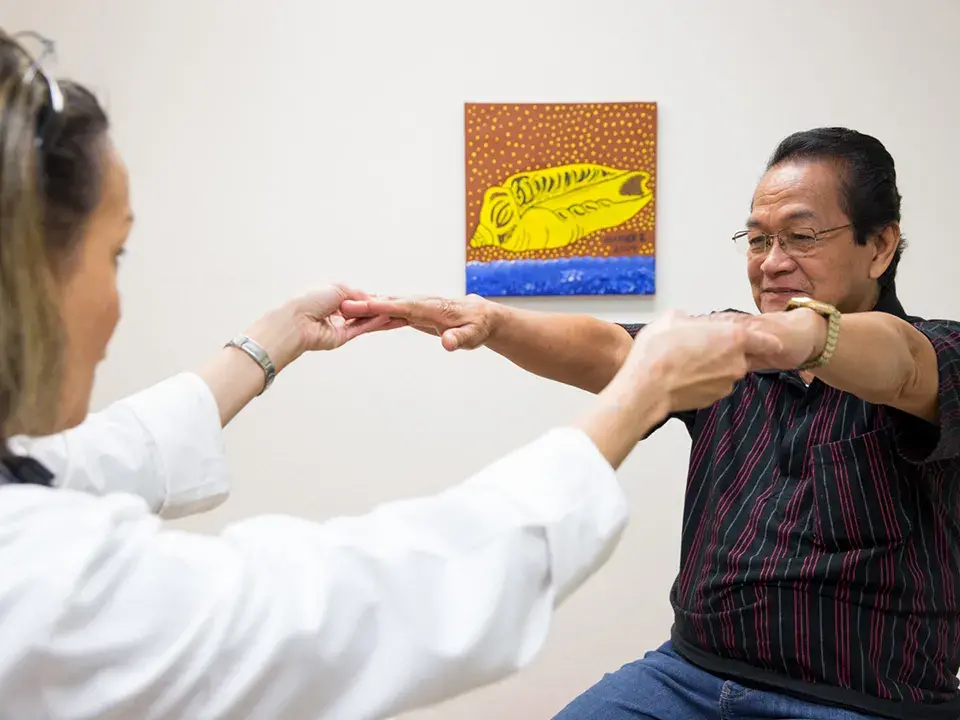How Nursing Students Can Help Seniors “Age in Place”

As people get older, most want to remain independent and living in their own homes. Two Samuel Merritt University (SMU) faculty members and an alumna will inform a national meeting of aging experts tomorrow about how nursing students can play a role in helping seniors maintain their health so they can “age in place.”
“There is a ‘silver tsunami’ coming as the baby boomers age,” says SMU Associate Professor Loretta Camarano, PhD. “Our current model of senior care is unsustainable, due to the high costs to put people in assisted living. Most seniors don’t want to go into assisted living because of those costs and their fear of social isolation.”
The SMU representatives will lead a workshop on March 29 at the American Society on Aging’s 2018 Aging in America Conference in San Francisco, sharing their experience in designing a prevention and wellness program for seniors.
Camarano — joined by Assistant Professor Jenny Zettler Rhodes, RN, and Judith Nolan, PhD, a graduate of SMU’s Accelerated Bachelor of Science in Nursing program — will discuss their success in working with older adults as part of a community health clinical rotation for nursing students from the University’s San Francisco Peninsula campus.
For the past several years, SMU student nurses have been leading two 10-week educational programs a year for senior residents living at an affordable housing facility in Mountain View, Calif. The sessions include yoga, strength training and balance exercises, craft making, blood-pressure screenings, and disease and risk prevention education.
“Students love forming relationships with the seniors and the seniors love the energy and creativity that the students bring,” says Camarano. She adds that the program also promotes socialization among the diverse group of senior residents.
In their presentation at the aging conference, the nurses will teach workshop participants about how a nursing school can collaborate with an independent senior living facility to create a wellness program that provides residents with physical and psychosocial benefits.
Camarano says the SMU collaboration has benefitted both the residents and the students, who learn about the healthcare needs of seniors.
During the workshop, Camarano and her colleagues will demonstrate how enabling seniors to live independently can decrease the economic and health burdens on the individuals and their families, while also providing significant financial benefits at the state and federal level by reducing Medicare costs.
“Seniors want to maintain their independence and stay in their own homes and communities,” agrees Nolan. “But they must know how to manage their risk factors to maintain that lifestyle.”


